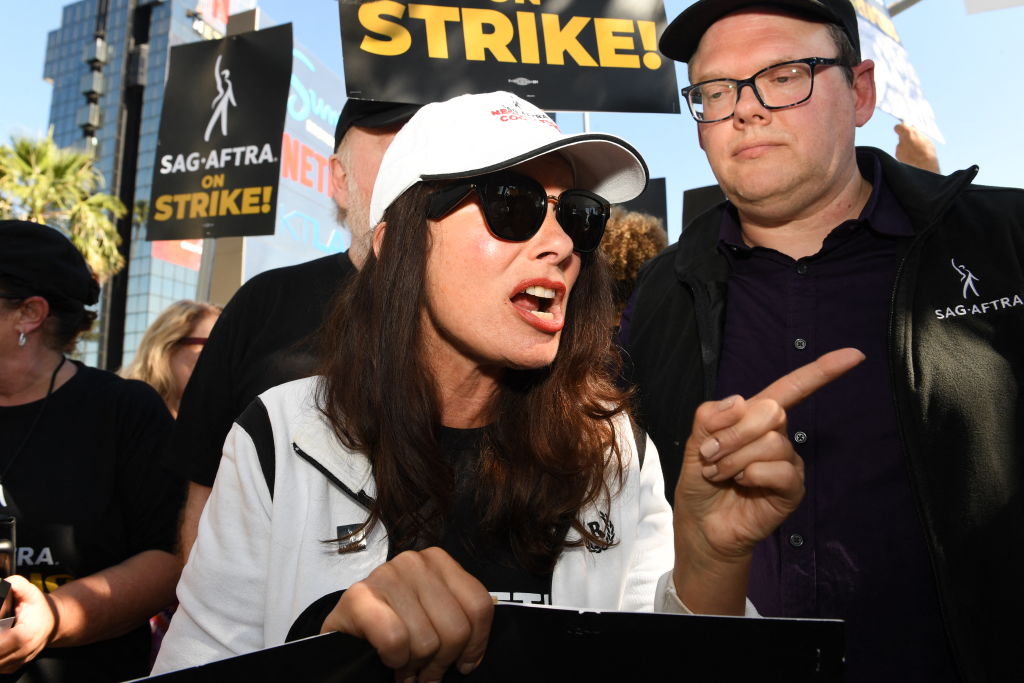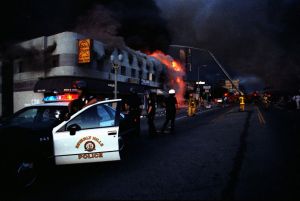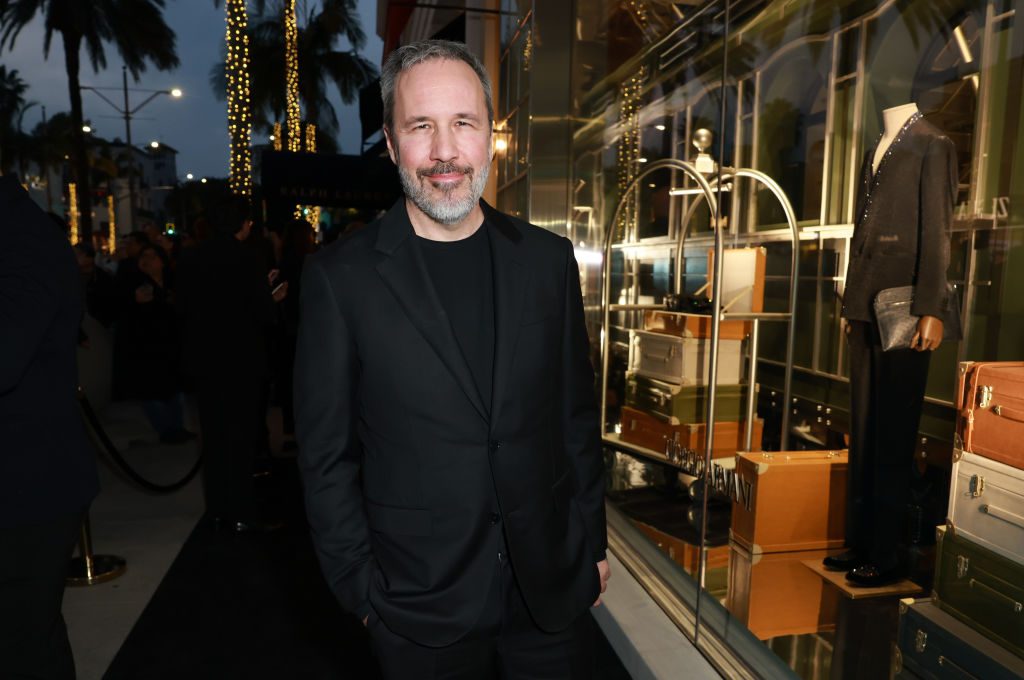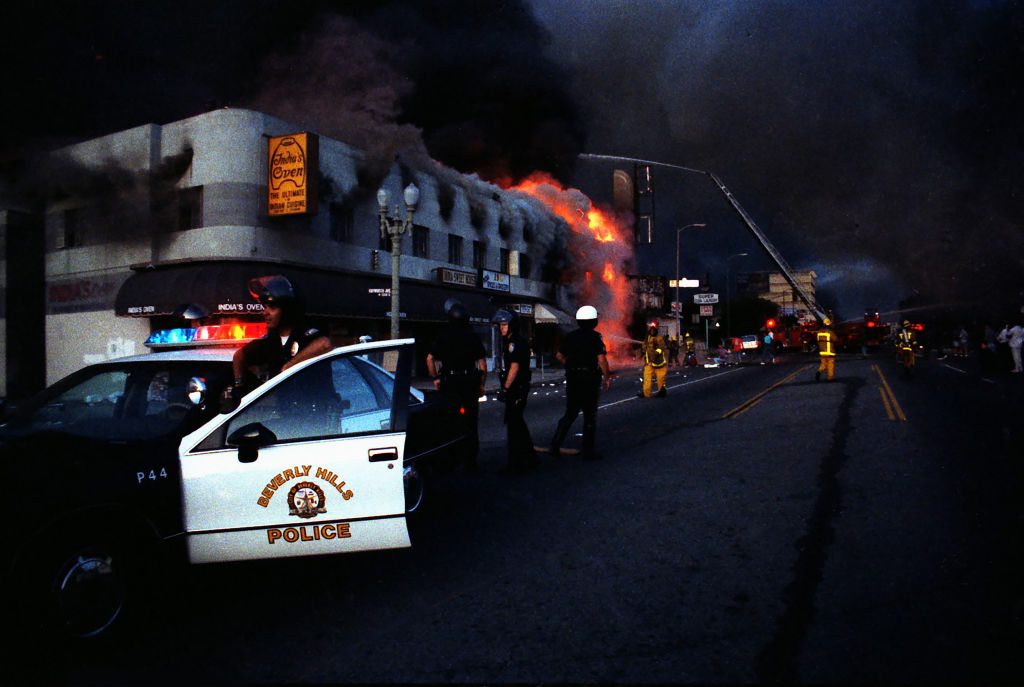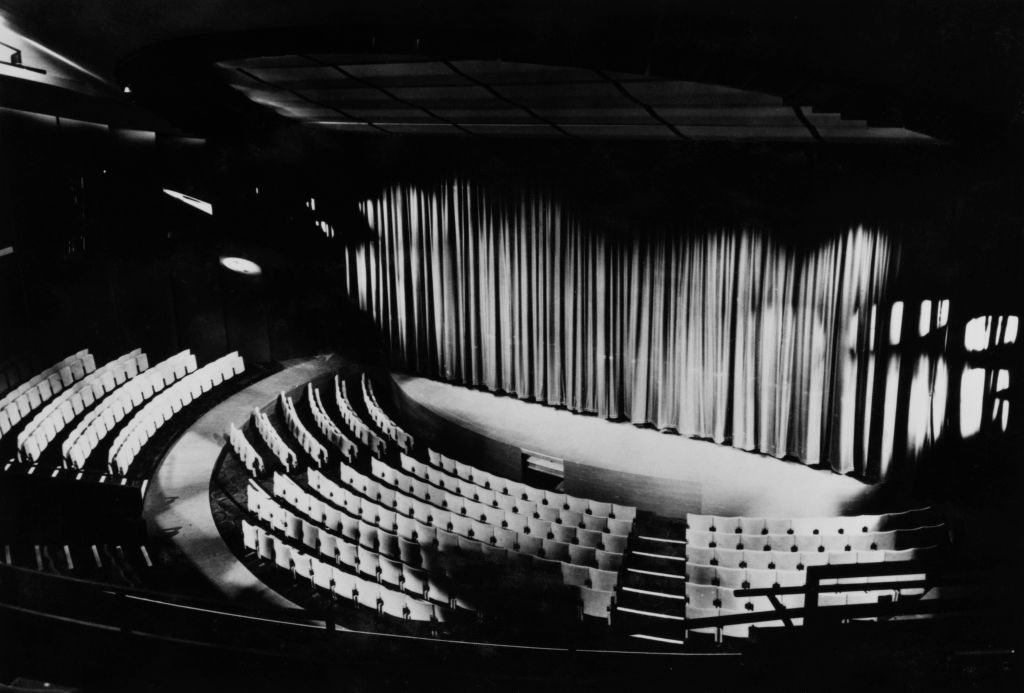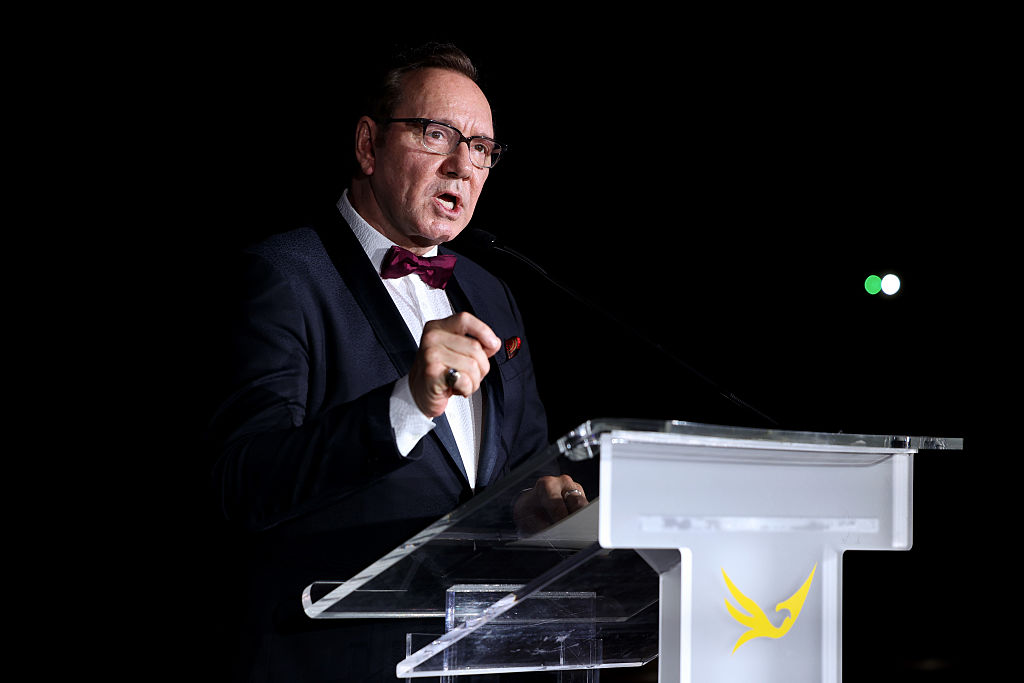Christopher Nolan’s latest film, Oppenheimer, is about the second biggest bang in history. Yet at its London premiere on Thursday, there was another explosion that, in its own way, was no less seismic than anything put on screen. Its star-studded cast, including Cillian Murphy, Emily Blunt, Matt Damon and Robert Downey Jr., assembled dutifully on the red carpet for interviews and selfies, but by the time that the film itself was about to screen, none of the actors were anywhere to be seen.
As Nolan said of his “incredible cast” in his introductory talk, “You’ve seen them here earlier on the red carpet. Unfortunately, they are off to write their picket signs for what we believe to be an imminent strike by SAG [the Screen Actors Guild], joining one of my guilds, the Writers Guild, in the struggle for fair wages for working members of their union.”
Nolan, like most high-profile filmmakers, is wholly supportive of the actors striking, which has been caused by a desire by performers to be paid better, for their images to be safeguarded against unauthorized AI use and for them to receive increased residual payments for work of theirs that appears on streaming services. With studios and production companies refusing to agree to their terms, many high-profile productions will simply halt until a compromise is reached, delaying everything from Gladiator 2 to Wicked.
It is a considerable blow to the film industry, which is still recovering from the one-two punch of Covid-induced delays and audiences being more cautious about returning to cinemas; the high-profile financial disappointments of both The Flash and the new Indiana Jones film are testament to a reluctance by many to see anything other than the truly unmissable. Yet it also represents a power struggle between the money, as epitomized by everyone from Netflix to the increasingly beleaguered Warner Bros Discovery, and the talent, in the form of the stars who appear on screen. Never mind the discussion as to whether Tom Cruise is the last actor who can truly open a movie; what the industry will be finding out very shortly is whether any actors are going to be able to appear in their productions, thanks to one-off deals being cut between the SAG, WGA and studios, or whether they will down tools for an indeterminate amount of time.
The last time that there was a major writers’ strike, from November 2007 to February 2008, it caused chaos. Notoriously, the Bond film Quantum of Solace not only began filming without a satisfactory or completed script, but as Daniel Craig later candidly said, “We had the bare bones of a script and then there was a writers’ strike and there was nothing we could do. We couldn’t employ a writer to finish it. I say to myself, “Never again,” but who knows? There was me trying to rewrite scenes — and a writer I am not.” The dismal, incomprehensible results speak for themselves. Yet Hollywood now finds itself in existential turmoil. Films can be muddied through without satisfactory scripts, just about, but without actors to appear in them, they stand no chance whatsoever of being completed. Hugely expensive productions will now be suspended indefinitely, costing millions in insurance and wages and fees; eagerly awaited films will be delayed months, if not years.
Anyone looking at the release schedule for the remainder of 2023 will note that there are relatively slim pickings most months, simply because fewer films are being made for theatrical release; a by-product of the dominance of streaming services. Yet the Writers’ Guild strike, which has been happening since May 2, shows no signs of being resolved, not least because the studios involved remain intransigent; Bob Iger, CEO of Disney, denounced their (reasonably modest) demands as “just not realistic” and “adding to a set of challenges that this business is already facing that is quite frankly very disruptive and dangerous.” It is unlikely that Iger and his peers are simply going to roll over, meaning that this has all the hallmarks of a protracted stand-off.
Very soon, there will be noticeable changes. SAG members are not allowed to publicize their work or appear at film premieres, meaning not only that the likes of Oppenheimer, which is due to have its New York first screening on Monday, will do so without its cast (although it’s possible to argue that Nolan is its biggest draw), and that film festivals such as Venice will take place without any actors present; it’s equally possible that filmmakers will boycott such events in solidarity with the two guilds. This will leave not just Hollywood but all of its related entities feeling like bleak, empty places.
Yet with the likes of Iger being unwilling to negotiate, few would bet against the strikes continuing into the fall, if not beyond. And, eventually, that will end up being an existential tragedy for a beleaguered and damaged industry: a century after it first achieved popularity, we may be seeing the death throes of cinema as we know it, unless some much-needed compromise can be reached, and quickly.



